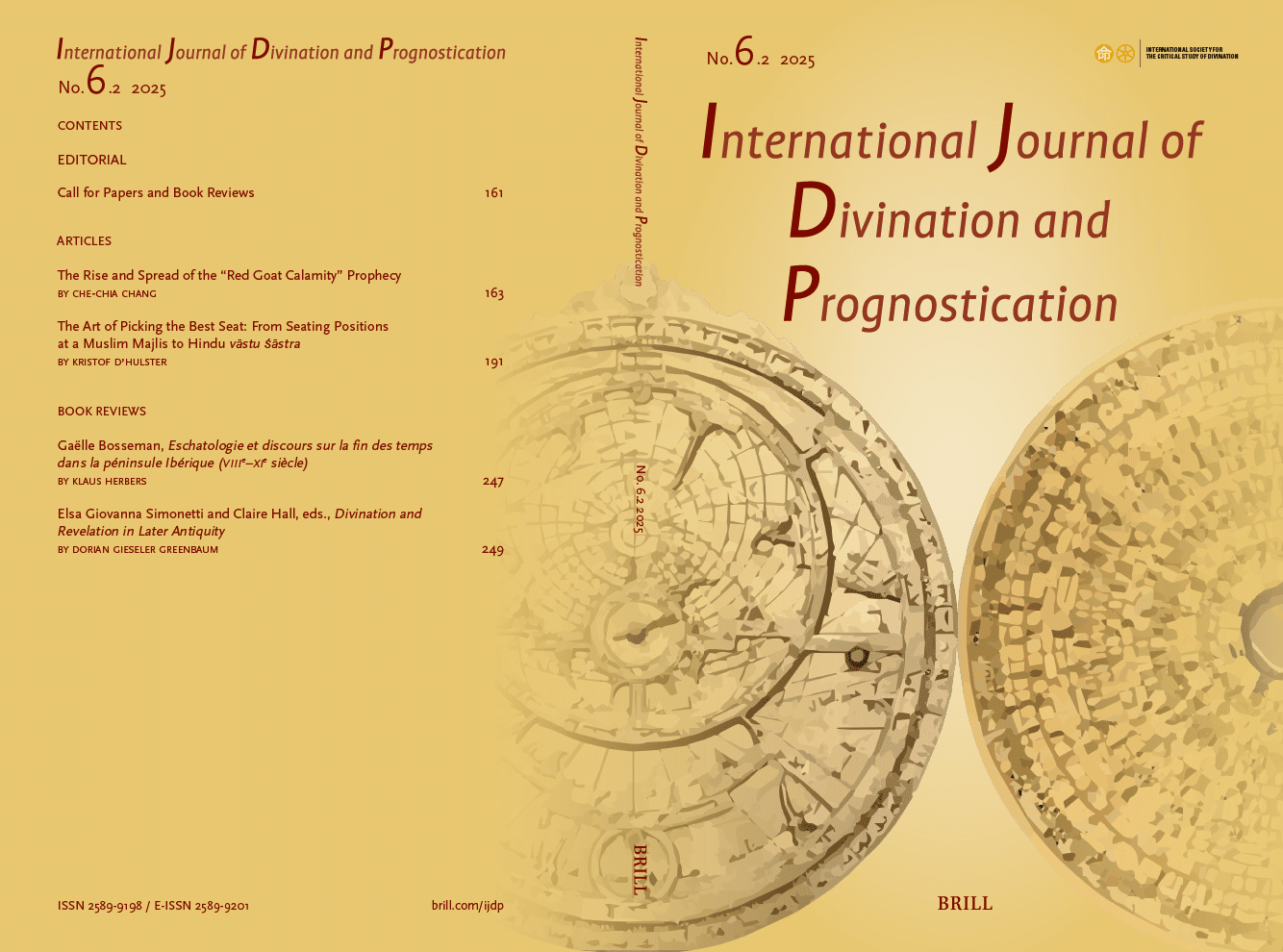Theories and practices of divination within Islamic traditions have often been misunderstood, marginalized, and even condemned as irrational or superstitious. Despite facing suspicion from official religious institutions and state authorities, diviners and healers continue to operate on the fringes of what is considered orthodox religious practice, navigating complex social and legal landscapes. However, recent scholarly endeavors have shed light on the internal coherence, historical depth, theoretical sophistication, and social importance of these practices, highlighting their role in addressing daily uncertainties, social conflicts, and afflictions within Muslim communities.
The International Journal of Divination and Prognostication invites scholarly contributions that delve into the multifaceted realms of divinatory theories and practices within Islamic traditions. We seek interdisciplinary perspectives from scholars across various fields including intellectual history, Islamic theology and jurisprudence, sociology, anthropology, and material cultural studies. Submissions may encompass a wide array of formats such as theoretical treatises, historical narratives, ethnographic studies, and theological reflections, among others. We encourage exploration of diverse divinatory theories and practices prevalent among Muslim societies, including but not limited to dream interpretation, geomancy, astrology, Islamic amulet crafting, omen reading, numerology, as well as localized divinatory practices and customs. Contributions spanning all periods and geographical locations of Muslim societies are warmly welcomed.
Topics of interest include, but are not limited to:
- Theoretical and methodological approaches to understanding divinatory practices within Islamic contexts;
- Historical and cultural contexts of divination in Muslim societies, including variations across regions and time periods;
- The role of divination in addressing social, political, and existential uncertainties within Muslim communities;
- Theological reflections on divinatory practices, within Sunni and Shiite beliefs;
- The experiences and perceptions of diviners and practitioners operating within Islamic frameworks;
- Comparative studies of divinatory practices across different religious and cultural contexts.
- Ethical considerations and challenges associated with the practice of divination within Islamic traditions.
Manuscripts should be original, unpublished works and adhere to the journal’s submission guidelines.
Articles should be 8,000–12,000 words, inclusive of abstract and references.
Submission of an abstract with 200-350 words and a maximum of 3-8 keywords should be sent to Gang Li (gang.g.li@fau.de) or Farid Suleiman (farid.suleiman@uni-greifswald.de) by 20 May 2024. Successful candidates will be informed by early June, and they will be invited to submit full articles by the end of October 2024.
All submissions will undergo a double-blind peer review process and the articles are expected to be published in 2025.
For inquiries or further information, please contact Gang Li at gang.g.li@fau.de.





